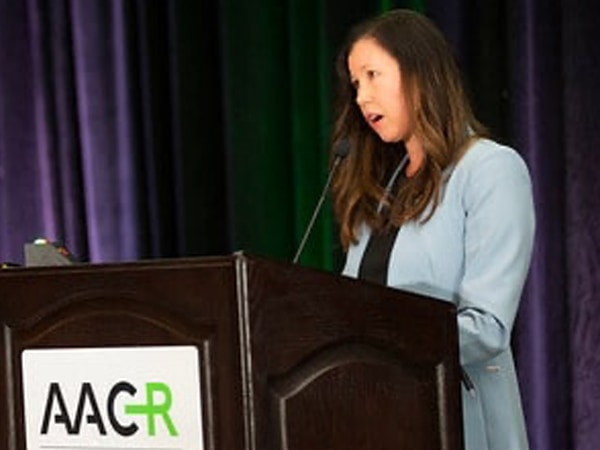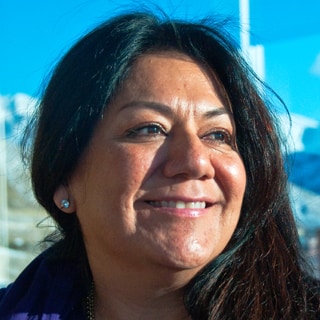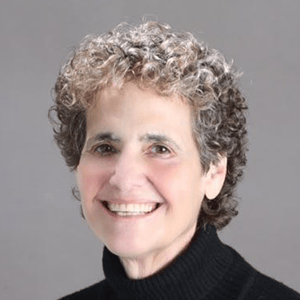Sections
Sections
In addition to fostering collaboration and innovation, the AACR advances its mission to prevent and cure all cancers by addressing the policy and regulatory challenges that can impede progress against cancer. The AACR Office of Science Policy and Government Affairs engages with lawmakers and regulators on behalf of the cancer research community, providing expert guidance on science-based policies to benefit cancer patients.
The AACR Science Policy and Government Affairs Committee identifies public issues of concern to the cancer research community and focuses on mechanisms for accelerating cancer research. Under the leadership of chair Roy S. Herbst, MD, PhD, the committee educates legislators and government agencies about these issues and advocates for increased funding for cancer research.
AACR President (2023-2024) Philip D. Greenberg, MD, FAACR, and AACR Science Policy and Government Affairs Committee chair Roy S. Herbst, MD, PhD, represented the AACR in meetings with the offices of legislators and appropriators to present the compelling case for increased funding for cancer research.
The AACR’s scientific programs and initiatives bring together scientists, clinicians, and other health care professionals and focus their efforts on improving the lives of cancer patients. Through its Survivor and Patient Advocacy programs, the AACR also educates and empowers patients, caregivers, and advocates, enabling them to approach their cancer journeys with knowledge and confidence.
The AACR Scientist↔︎Survivor Program® (SSP) builds enduring partnerships among leaders of the scientific, survivor, and patient advocacy communities by convening them at AACR scientific meetings to engage with the latest innovative cancer science. Survivors and advocates attend focused lectures and scientific sessions with scientist mentors, fostering an exchange in which patients and advocates explore the biology behind treatment decisions and scientists learn about the impact their work has on the patient experience.
In April, the AACR celebrated the 25th anniversary of the founding of the SSP program with a special acknowledgement during the Opening Ceremony of the AACR Annual Meeting 2023. AACR CEO Margaret Foti, PhD, MD (hc), recognized program founder Anna D. Barker, PhD, FAACR, during the ceremony, and SSP participants were brought on stage so that Annual Meeting attendees could thank them and their fellow advocates around the world for their contributions to improving the lives of patients with cancer.
Under the leadership of SSP founder Anna D. Barker, PhD, FAACR, this regular series of educational sessions addressed several critical topics in 2023, including the impact of advanced technologies on cancer research; the evolution of FDA regulatory science and its impact on cancer; and the future of drug discovery and development. Since the launch of the series in October 2020, these excellent forums have garnered an audience of nearly 3,000 people in 60 countries around the world.
The AACR Survivor and Patient Advocacy program amplified the voices of patient advocates in 2023, organizing patient advocate sessions at several AACR conferences and workshops to educate participating scientists about the value of patient input in the research process:

Cancer Today is the AACR’s award-winning magazine and website for cancer patients, survivors, and caregivers. Published since 2011, the magazine has addressed important cancer topics in a comprehensive, understandable way. Cancer Today is a vital resource for those navigating a cancer diagnosis, treatment, or survival. Among the most read stories published in 2023 were the following:
The AACR Distinguished Public Service Award recognizes individuals whose extraordinary work has exemplified the AACR’s mission to prevent and cure all cancers through research, education, communication, collaboration, science policy, advocacy, and funding for cancer research. During the Opening Ceremony at the AACR Annual Meeting 2023, the AACR honored two inspiring patient advocates who have also served as advocate mentors in the AACR SSP program.

Phyllis Pettit Nassi, MSW
Associate Director of Research and Science, Special Populations
Huntsman Cancer Institute at the University of Utah
Salt Lake City, Utah
An AACR member since 2010, Ms. Pettit Nassi is an enrolled member of the Otoe-Missouria Tribe and member of the Cherokee Nation whose work has profoundly impacted tribal, rural, and frontier communities and improved quality of life and access to cancer care. She served as a member of the AACR Cancer Disparities Progress Report Advisory Committee in 2022 and as program committee cochair for the 12th AACR Conference on The Science of Cancer Health Disparities in Racial/Ethnic Minorites and the Medically Underserved in 2019. She received the Distinguished Public Service Award in recognition of her longstanding commitment as a patient advocate for American Indian Tribes across the Mountain West and beyond, and for an unwavering commitment to improving health literacy and clinical trial enrollment among American Indian populations.

Jane Perlmutter, PhD, MBA
President and Founder
Gemini Group
Ann Arbor, Michigan
A survivor of breast, esophageal, and lung cancer herself, Dr. Perlmutter has been a member of the AACR since 2006. She has served on the steering committees and as the lead advocate on the ISPY and TAPUR trials, and as chair of the Patient-Centered Outcomes Research Institute (PCORI) Patient Engagement Advisory Panel. She has also served on numerous other advisory boards, committees, and task forces—including the Alliance for Clinical Trials, with the goal of integrating patient concerns and priorities into large clinical trials and other cancer research initiatives. She received the Distinguished Public Service Award in recognition of her unparalleled leadership as a patient advocate, including through the AACR’s Scientist↔︎Survivor Program®; her dedication to improving the patient experience through innovative clinical trial designs; and for efforts to ensure that the patient voice is included in research and trial design, accelerating patient access to new treatments and drastically improving their quality of life and overall survivorship.